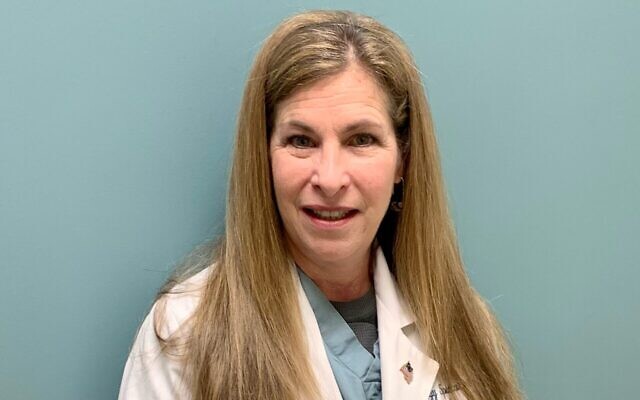Female Urologist is Rarity in Georgia
Atlanta doctor Joan Hader specializes in female urology, but 40 percent of her patients are male.
After 37 years with the Atlanta Journal-Constitution and now with the AJT, , Jaffe’s focus is lifestyle, art, dining, fashion, and community events with emphasis on Jewish movers and shakers.

Joan Hader was born and raised in Atlanta and went to the University of Georgia, then onto the Medical College of Georgia. After a six-year residency at the University of Maryland Medical System, she settled back home into private practice. Since she was 12, she developed a fascination with medicine watching “Medical Center” with Chad Everett.
“I knew I wanted to be a doc. During summers, I was a recovery room nurse’s assistant, then gave allergy shots. I went straight through school and spent most of my time studying rather than working. “
Urology 28 years ago was certainly a male dominated field, and women were only 1 percent of urologists. She decided in med school that she wanted to be a surgeon, and when she rotated in urology, she truly liked it. But when her attending teaching professor at the Augusta VA Medical Center made the comment to her that “women don’t go into urology,” she decided to challenge herself and prove them wrong.
“What no one seemed to mention or realize was the extent of urology issues in women. I was the second female urologist in Atlanta in 1993. Overall, female urologists comprise approximately 8 to 10 percent of all urologists in the U.S.”
Hader treats both men and women at a ratio of 40 to 60 percent. Many men actually seek out female doctors because of their nurturing nature and ability to listen, she said. When men make appointments, they usually know they’re seeing a woman.
She performs vasectomies, penile prosthesis and treats erectile dysfunction. She has an amiable chairside manner and notes that men prefer her smaller fingers, which could result in less invasive situations. While men often suffer from a weak stream, which can be relaxed by Flomax, women more commonly complain of overactive bladder or incontinence with a “gotta go” feeling, Hader explained.
The most prevalent female conditions she treats are urinary incontinence, urinary tract infections and kidney stones. “Prostate cancer and kidney cancer have slowly increased related to people living longer but are mostly curable. Bladder cancer has declined some. I see no drastic increases in any GU [genitourinary] cancers.”
Seeing drug remedies on TV commercials for frequency and or urgency feelings, Hader defines normal voiding in a 24-hour period as about eight times, which varies with fluid intake. Getting up in the middle of the night should be zero to one time, depending on fluid intake and length of sleep. Also, the older, the more frequent. More women are likely to be treated with meds for frequency/urgency than men.
She cautions, “Some foods can irritate the bladder, causing frequency/urgency (alcohol, acidic foods). They don’t physically injure the bladder, just cause the symptoms. Cranberry is shown in some studies to help prevent UTI’s in some women. It works by preventing bacteria from adhering to the bladder wall and multiplying. Soft drinks can irritate the bladder. The dark color of soda/cola and some teas have oxalate that can cause stones in people who have a propensity to form kidney stones.”
She recommends Kegel exercises, pelvic floor muscle training for bladder control, as long as they are done regularly. They could improve 50 percent of milder symptoms, but cure less than 20 percent of problems, Hader said.
“Urology overlaps with gynecology only with respect to incontinence and pelvic prolapse. Urogynecologists are not urologists or vice versa. Prolapse can be handled by either specialty as both disciplines have physicians who specialize in that.” Prolapse occurs when pelvic floor muscles and ligaments stretch and weaken and are no longer able to provide enough support for the uterus.
Female sexual dysfunction can by handled by either specialist, but usually by a gynecologist unless the urologist specializes in that. Hysterectomies would fall in the gynecology column, she said.
Dr. Joan Hader is part of Urology Specialists of Atlanta associated with Saint Joseph’s and Northside hospitals.



comments